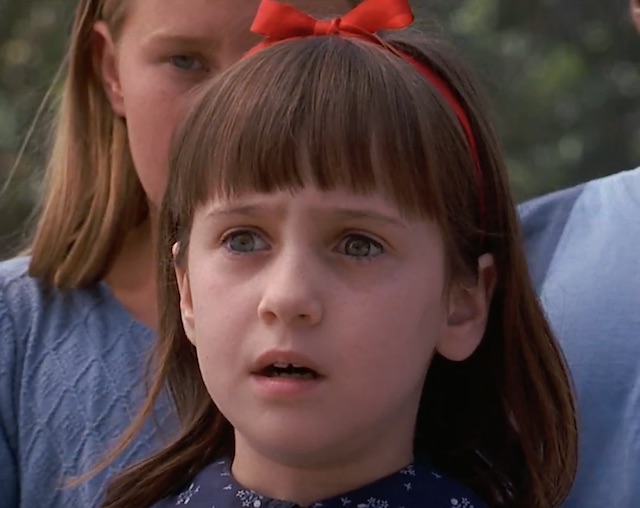
“Emotional intimacy with your children is a fragile gift that can easily break when we erode trust through punishments, shame, blame, scolding, or manipulation.” ~ Janet Lansbury
.
.
When I was in kindergarten, I told a lie that would become a defining moment in my life.
I was standing in front of Sister’s teaching platform, trembling in my little navy blue uniform and blue and white Oxford shoes.
I looked up at her looming so large in front of me as she struck her pointer on the desk to emphasize each word.
“Carmelene. Siani. I’m only going to ask you one more time!”
What had I done? I thought it was okay to write. I thought that’s what she wanted.
I was overwhelmed with confusion and didn’t know what else to do. I was terrified.
“No Sister. I didn’t carve my name on my desk.”
The aftermath of that lie became life-changing for me.
Janet Lansbury, who has authored many books on respectful parenting, addresses why children lie.
“When our children’s behavior is off-track, they need us to calmly stop them, help them, and guide them. They need to know that we’re always in their corner (rather than sending them off to one).”
Funny that Lansbury would mention being sent to stand in a corner.
Putting a bar of soap in a child’s mouth today is unthinkable—70 years ago, however, it was probably standard procedure.
My mother seethed, “I’ll teach you to lie to me!”
In front of me in the corner, I saw the line where the two walls of the kitchen met, and in my imagination it was the line that divided the truth from a lie.
The more the soap in my mouth burned, the more I gagged, and the more the line in front of me blurred.
Ultimately, it disappeared altogether.
“No Mother, I didn’t do it. I didn’t write my name on my desk.”
From that moment on, I believed my own lie.
Lansbury says that “shaming or punishing children for lying creates distance and mistrust, which only encourages kids to lie better.”
While I didn’t necessarily grow up lying better and better, I grew up ashamed of myself. It took decades in therapy before I stopped being that little girl in the corner with a bar of soap in her mouth.
Today, I love how it feels to read Lansbury’s unbridled respect for children and their innocence. All these years later, her gentleness, her understanding, and her respect feel comforting to the little girl in me.
“In all cases, our openness, curiosity, and unruffled, unthreatened, patient responses [to children] are the best way to diffuse the need to fabricate. They go a long way in forging a relationship that forever eliminates the need for avoidance of the truth.” ~ Janet Lansbury
I have adopted Lansbury’s attitude as part of my own self-talk.
When I was growing up, parents had little or nothing to go on besides their own upbringing. Likely, when my mother “caught me lying” it shook her world as much as it did mine. She shamed me because she loved me and wanted to protect me.
Today, parents have many resources to help them understand lying in children.
I have found Lansbury’s approach valuable in helping me to understand why I lied at such an early age.
Here is what Lansbury says about the variety of reasons why children lie:
>> Children are emotionally ignorant and it simply feels preferable to a child when they’re in the moment and don’t know any other way to react.
>> As the unfortunate result of the anger or other emotional responses of parents or others, including punishment when children have erred, children lie out of fear.
>> Children might try out a lie to see if they have the power to ruffle the feathers of those who have control over them.
>> Children can become absorbed in their fantasies—a healthy stage of development which they certainly don’t need us to jar them out of.
The bottom line is to respond to our children in these situations in such a way as to help them know that we will create safety in our regard for them, safety in our love for them, and safety in our like for them.
As for myself, I still remember the moment during reading class when I watched as Sister was putting lines and circles on the blackboard and they suddenly came together for me in a way that made sense.
I literally “saw” a word swim to the surface from beneath Sister’s fingertips.
What if instead of shaming and threatening me for carving my name in my desk, someone understood emphatically that I just didn’t know any better, and that I was so excited and so elated—and so proud of myself—that I simply couldn’t wait until I had paper.
What if someone—Sister, or my mother—had actually said to me,
“C-A-R-M-E-L-E-N-E. That’s a really long name for a little girl to remember how to spell. I bet you felt proud of being able to do it and couldn’t wait until Sister passed out paper. How about we clean the ink off the desk together and then I get some paper for you and you show me again how you can write such a long name all by yourself.”
~
Author: Carmelene Siani
Image: YouTube still
Editor: Caitlin Oriel


 Share on bsky
Share on bsky




Read 1 comment and reply